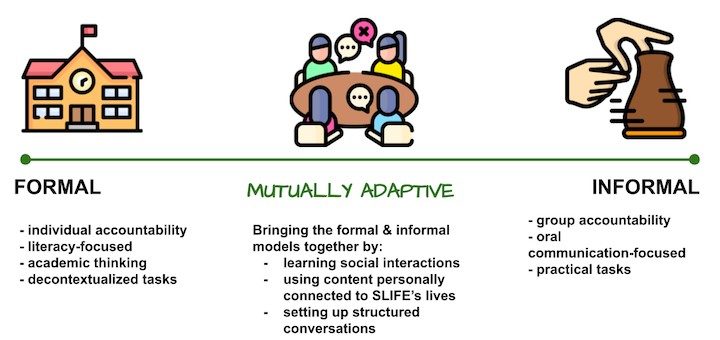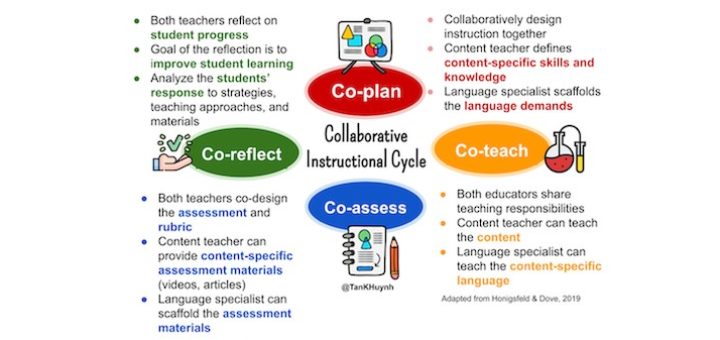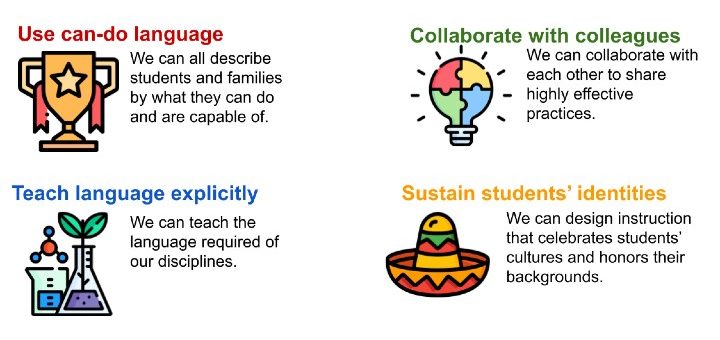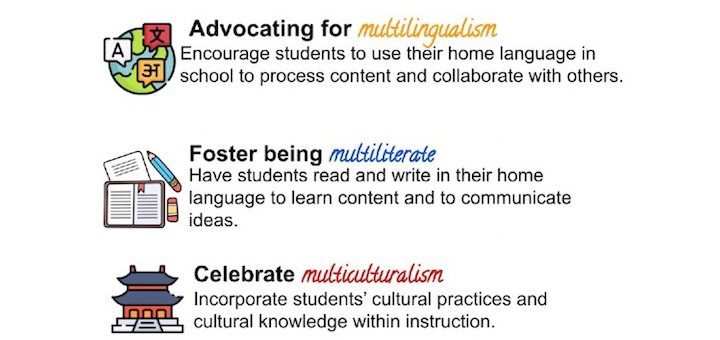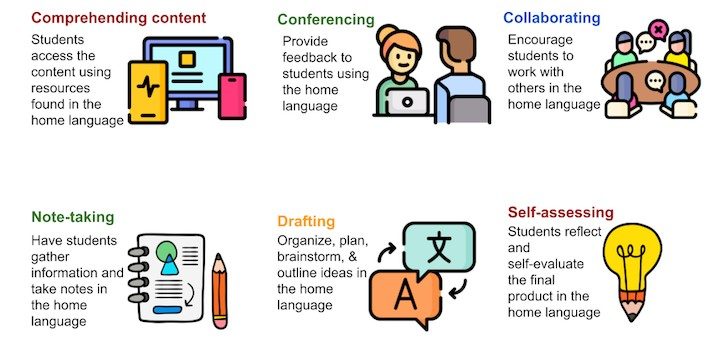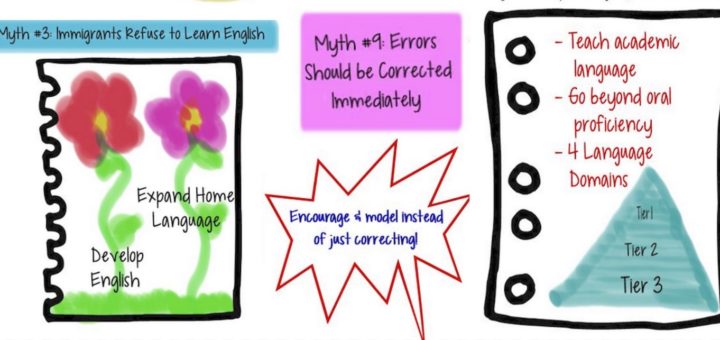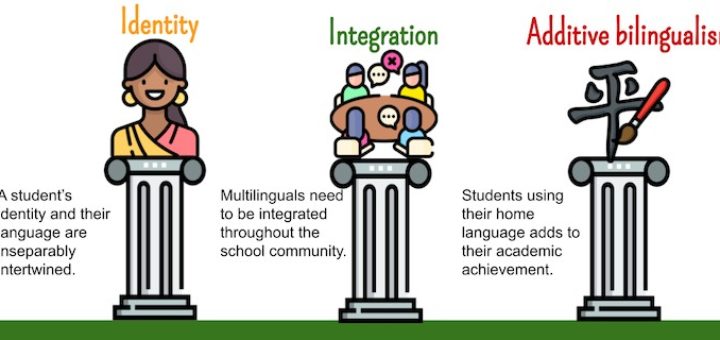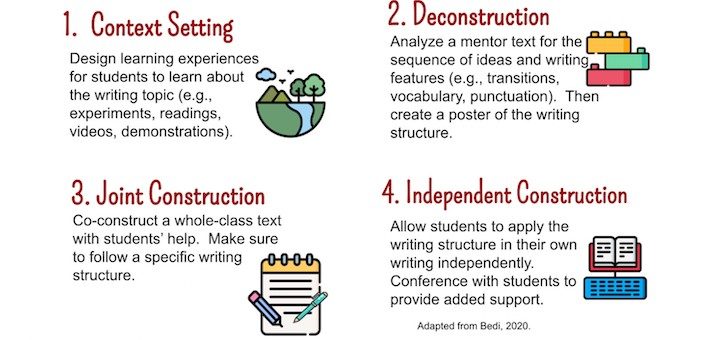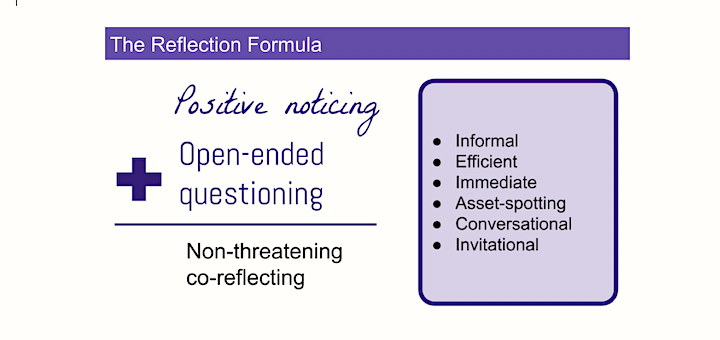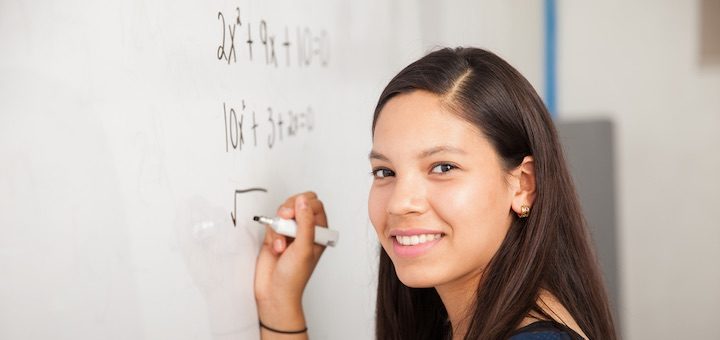Tagged: Unstoppable EL Teacher
Students with limited or interrupted formal education (SLIFE) benefit when teachers consider how SLIFEs have learned previously – most often informally in their family culture. Tan Huynh shares ways educators can blend a formal literacy focus with the relational learning they’re used to.
When co-teachers implement Honigsfeld and Dove’s collaborative instructional cycle – co-planning, co-assessing and co-reflecting – multilingual students and their fellow students benefit from the robust, dynamic instruction, writes language specialist Tan Huynh.
What factor has the greatest positive impact on student achievement? Collective teacher efficacy, says John Hattie. To foster CET around multilinguals (MLs) use can-do language, collaborate, teach language explicitly, and incorporate asset-based practices, writes Tan Huynh.
Drawing on a conversation with Dr. Brandon Beck, language specialist and co-teacher Tan Huynh highlights the roles monolingual educators have in advocating for multilingualism, fostering being multiliterate, and celebrating multiculturalism to support language learners.
Creating assessments in multiple languages means encouraging students to use their home language throughout the assessment process. Tan Huynh shares seven ways, including conferencing and self-assessing, to embed home languages into evaluations.
Drawing on his podcast with Dr. Sonia Soltero, language specialist and co-teacher Tan Huynh explains 9 myths that often prevent language learners from receiving the most equitable, rigorous learning experiences and can sever connections to their communities and families.
Language specialists and multilingual educators can boost achievement for their students by using Ester de Jong’s principles of multilingualism, making sure ML learners study grade-level content in two languages as a daily practice, writes teacher and podcaster Tan Huynh.
Considering how to shift from just assigning writing to modeling writing, language specialist and co-teacher Tan Huynh walks readers through the process of making the act of writing visible to students. Tan draws on his podcast chat with workshop facilitator Indu Bedi.
If getting feedback from students is an effective practice, why not ask for feedback from our teaching partners? Language specialist and co-teacher Tan Huynh describes formal and informal co-reflecting, outlines useful topics, and provides several co-reflection protocols.
Many myths surround math instruction and language learners. Dr. Jim Ewing singles out three that often hold language learners back from high levels of achievement in math class. In his recent talk with Tan Huynh, Ewing described a framework for success that Tan shares here.

